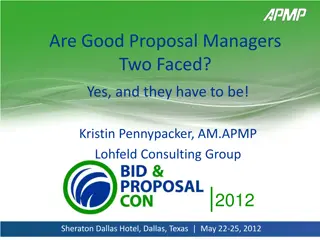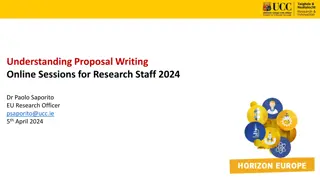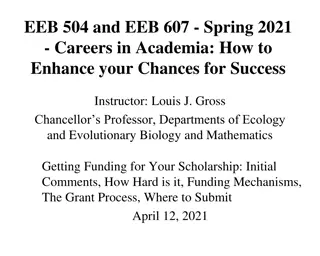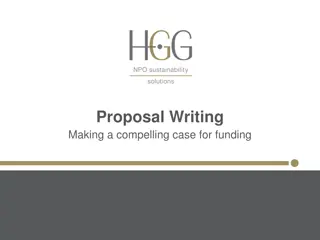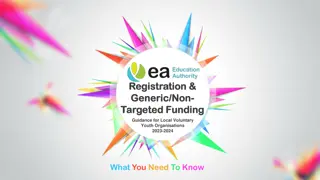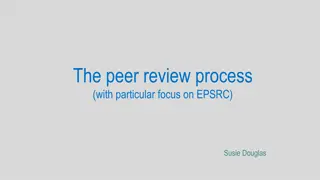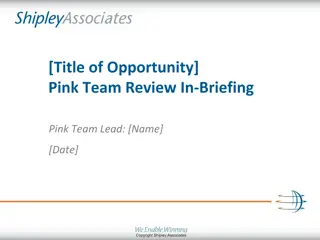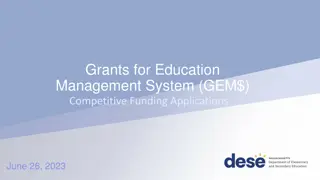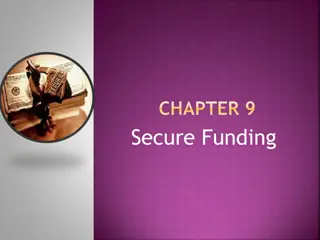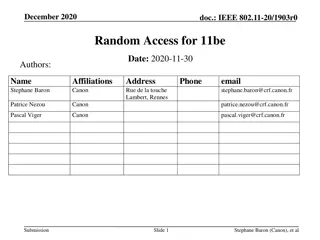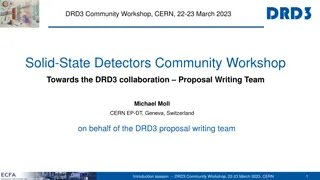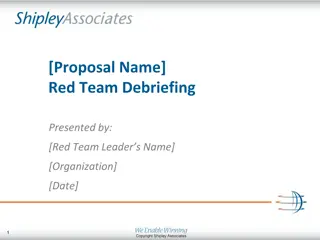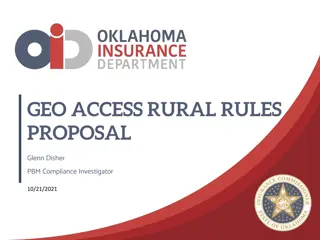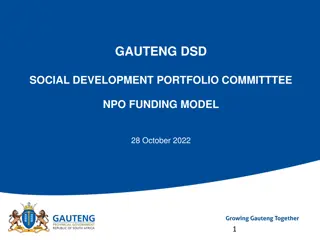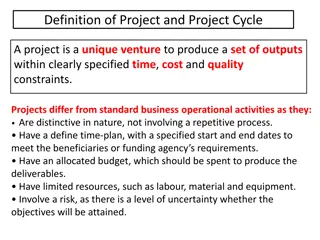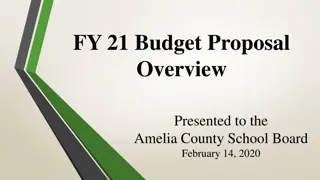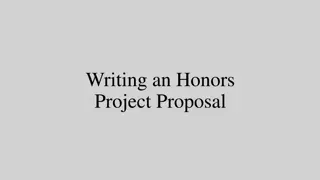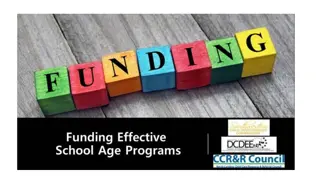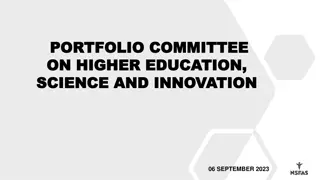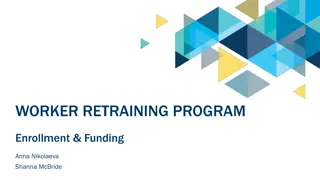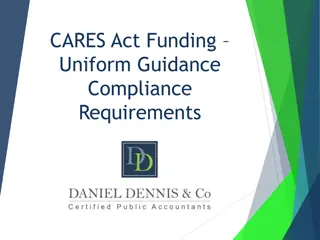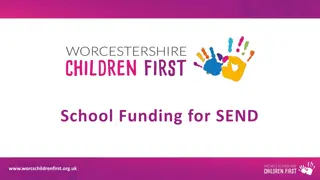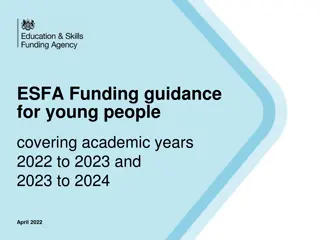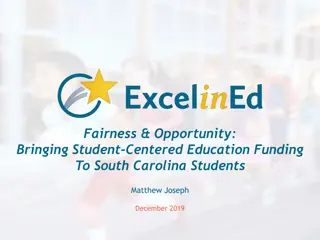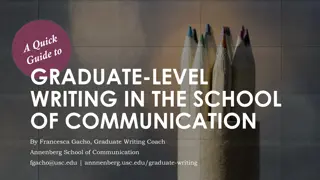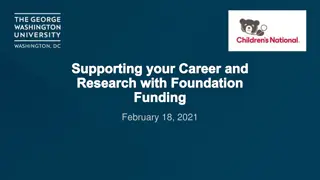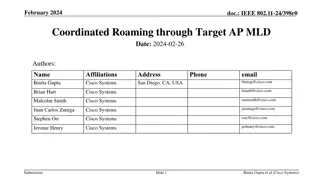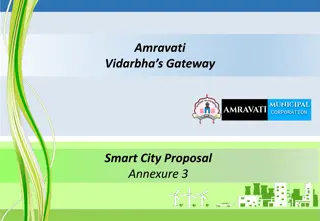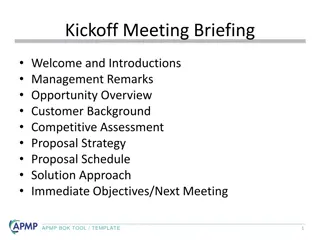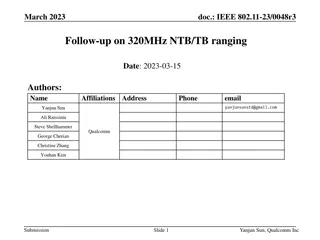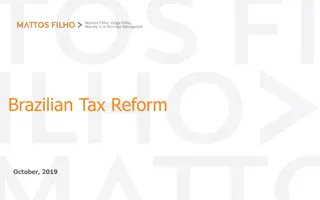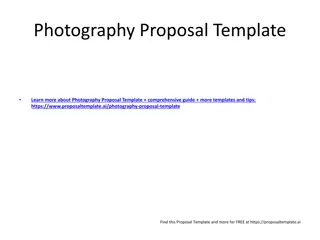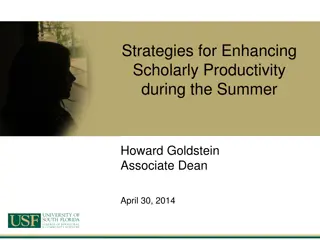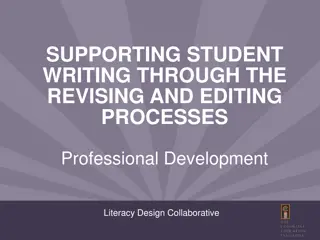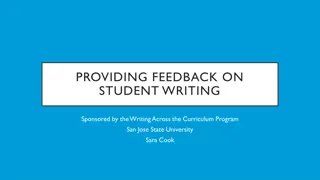Effective Proposal Writing: Key Strategies for Securing Funding
Proposal writing is essential in academia for securing funding. This workshop at Benue State University shed light on the importance of persuading reviewers and addressing unspoken needs of funding agencies. Key elements such as conceptual innovation, methodological rigor, and rich substantive content were emphasized, along with the need for conciseness and attention-grabbing techniques in different types of proposals. Understanding the needs of funding agencies and adhering to their norms and rules are crucial for attracting funding successfully.
Download Presentation

Please find below an Image/Link to download the presentation.
The content on the website is provided AS IS for your information and personal use only. It may not be sold, licensed, or shared on other websites without obtaining consent from the author. Download presentation by click this link. If you encounter any issues during the download, it is possible that the publisher has removed the file from their server.
E N D
Presentation Transcript
BENUE STATE UNIVERSITY (BSU) CAPACITY BUILDING WORKSHOP ON PROPOSAL WRITING AND RESEARCH MANAGEMENT FOR PROJECTS AND OTHER SCHOLARLY PRODUCTIONS SUB-THEME 1: SOME HINTS ON PROPOSAL WRITING BY DR. SAAWUA G. NYITYO DEPUTY DIRECTOR, DEVELOPMENT AND LINKAGES BSU, MAKURDI
SUB-THEME 1: WRITING Proposal writing is an important facet of our academic engagement. It constitutes an important part of our academic culture. The purpose of this session is to give competitors for fellowships and other forms of funding and even playing ground by making explicit some of the unspoken demands, needs and customs of funding agencies. PROPOSAL
FUNCTIONS OF A PROPOSAL - It Must Persuade - It establishes a good case to investigate - It must have three kinds of merit which all disciplines value 3
KINDS OF MERIT - Conceptual Innovation - Methodological Rigour - Rich Substantive Content 4
TYPES OF PROPOSALS - For original essays, dissertations and thesis - Research fellowships and committee competitions - Attention grabbing is needed in this type of writing than in any other one - We must all bear in mind that writing for committee competition is an art quite different from research work itself 5
- We must attempt to be concise, prignant and to the point - We must therefore pay attention to a set of unspoken customs, norms and needs that govern the selection process 6
PROPOSALS THAT ATTRACT FUNDING - One that gets its merits across more forcefully - One that addresses these unspoken needs and norms - One that adheres to norms as well as overt rules 7
NEEDS OF FUNDING AGENCIES - Capture the reviewer s attention - What are we going to learn about the proposed project? - Why is it worth knowing? - How will we know that the conclusions are valid? - Say what you have to say immediately, crisply and forcefully 8
- The opening paragraph or the first page is your chance to grab the reviewer s attention - Use that particular moment to overstate, rather than understate - Questions that are clearly posed are an excellent way to begin a proposal: e.g. Is single term presidency conducive to democratic stability? Is the decline in militant activities the result of Government Policies? - You can also begin by stating your central point, hypothesis or interpretation e.g. The success and failure of Obasanjo Administration s Anti-corruption crusade stemmed from the selective nature of the campaign , Population growth coupled with rural-urban migration poses a threat to Nigerian food security in the next decade. 9
- Not all conceptualizations are captured in telegraphic messages - Sometimes only step-by-step argumentation can define the central problem - Aim for clarity - Remember that most proposals are reviewed by multidisciplinary committees - Avoid the duller idiosyncracies of your discipline - Avoid jargon and when technical language is really needed, restrict yourself, to those new words and technical terms that truly lack equivalents in common language 10
Establish the Context - Tell the committee not only what will be learned as a result of your project - What will be learned that somebody else does not already know - It is essential to summarize the current state of knowledge - Provide an up-to-date, and comprehensive bibliography - Proposal writers with limited library resources are urged to correspond with colleagues and libraries elsewhere in the early stages of research planning 11
- Resource guides such as Dissertation Abstracts, international and social science periodical index are highly recommended 12
JUSTIFICATION - This depends on disciplinary norms and personal tastes - The less known about one s chosen case, the better - Citing the importance of the events that provide the subject matter is good justification - It is crucial to convince readers that such topics are not merely timely, but that their current urgency provides a window into some abiding problem 13
- Help your reader understand where the problem intersects the main theoretical debates in your field - Good proposals demonstrate awareness of alternative viewpoints and argue the author s position in such a way as to address the field broadly 14
USE A FRESH APPROACH - It pays to remember topics of current salience, both theoretical and empirical - Competitors will be numerous and the competition less interesting than in truly unfamiliar terrain - Avoid topics typically styled of central interest to the discipline - Nothing is more valuable than a really fresh beginning 15
DESCRIBE YOUR METHODOLOGY - The proposal must specify the research operations you will undertake and the way you will interpret the results of these operations in terms of your central problem - Do not just tell what you mean to achieve, tell how you will spend your time doing it - A methodology is not just a list of research tasks but an argument as to why these tasks add up to the best attack on the problem 16
- The process of gathering data and moving from data to interpretation tends to follow disciplinary customs. - Help readers to recognize what parts of your methodology are standard, innovative - Be as specific as you possibly can be about the activities you plan to undertake to collect information - About the techniques you will use to analyze it - About the tests of validity to which you commit yourself which are 17
- Most proposals fail because they leave reviewers wondering what the applicant will actually do. - Tell them! Specify the archives, the sources, the respondents and the proposed techniques of analysis - A research design proposing comparison between two cases often has special appeal - The proposal should prove that the researcher either possesses, or cooperates with people who possess mastery of all the technical matters the project entails 18
SPECIFY YOUR OBJECTIVES - Convince the reader that something is genuinely at stake in the inquiry - Create a leaven of the unknown will yield interesting, orderly propositions - Proposals should normally describe the final product of the project: an article, book, chapter, dissertation etc - Spell out specific plans - Keep in line the programme guidelines - Your final proposal should include all requested enclosures and appendices 19
FINAL NOTE To write a good proposal takes a long time. Start early. Begin thinking about your topic well in advance and make it a habit to collect references while you work on other tasks. Write a first draft and revisit it again and again. Collect colleagues comments and revisit it again. If you have a chance to share it with a seminar or similar group the debate should help you anticipate what reviewers will eventually think. Resharpen your opening paragraph or first page so that it drives home exactly what you mean as effectively as possible. Thank you. 20
Dr. Saawua G. Nyityo, nyityoatsea72@yahoo.com Department of History, Benue State University, Makurdi 21


